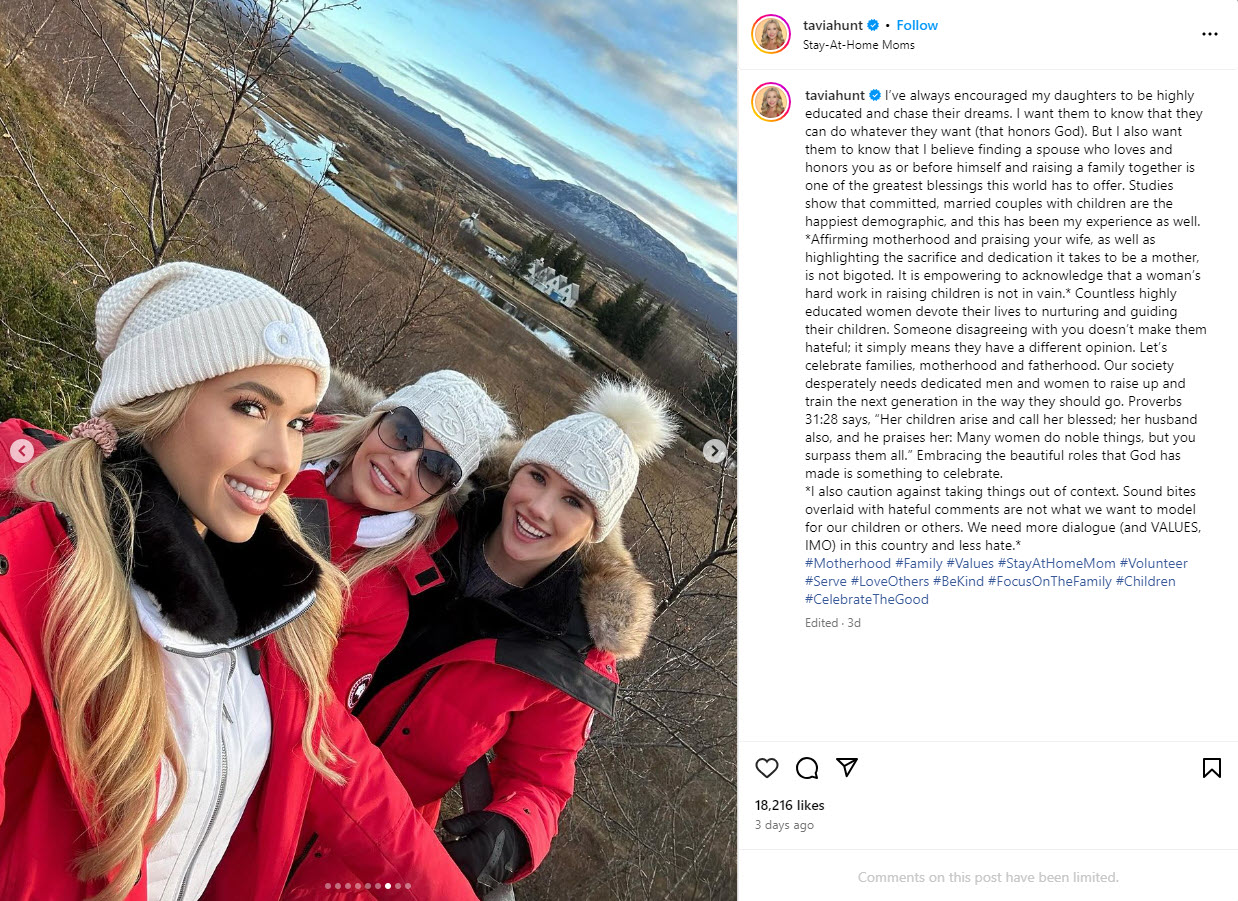What could this year’s NFL Super Bowl champs have to do with my craft beverage business?
As it turns out, there are quite a few parallels. But first a story.
 In the news recently you likely heard about the backlash over NFL player Harrison Butker’s commencement speech at Benedictine College. Nearly 500 graduates got more of a lecture than words of encouragement from Butker, who crossed the line with personal opinions about sexual orientation; diversity, equity, and inclusion (DEI); and gender-based roles inside and outside the home. He used the opportunity as a platform to share his religious beliefs rather than to perform the task for which he was invited to speak: simply celebrating and encouraging this year’s graduating class.
In the news recently you likely heard about the backlash over NFL player Harrison Butker’s commencement speech at Benedictine College. Nearly 500 graduates got more of a lecture than words of encouragement from Butker, who crossed the line with personal opinions about sexual orientation; diversity, equity, and inclusion (DEI); and gender-based roles inside and outside the home. He used the opportunity as a platform to share his religious beliefs rather than to perform the task for which he was invited to speak: simply celebrating and encouraging this year’s graduating class.
Let’s be clear – we have no interest in writing an article that’s all click-baity with quotes and links and celebrity soundbites. And the point is not to dispute Butker’s belief system, although we’ve always felt that businesses, athletes, celebrities, and others in positions of influence are best served by separating politics and religion from work (unless your brand IS mission-based). What we’re interested in is learning from the publicity backlash that followed, and the missteps taken by the Kansas City Chiefs and the NFL, to help you and your team avoid similar mistakes in the future.
 Harrison Butker is an incredible athlete for his position (second in NFL history in career field goal percentage at 89.1) and is a three-time Super Bowl Champion with the Chiefs. He’s a family man with a wife and two kids. And he’s a devout Catholic. Together, this is Butker’s brand, with a lower-case “b.” It’s who he is and how he represents himself individually to others including his team. And as an individual, he has the right to express himself and his own opinions. Freedom of speech, after all…
Harrison Butker is an incredible athlete for his position (second in NFL history in career field goal percentage at 89.1) and is a three-time Super Bowl Champion with the Chiefs. He’s a family man with a wife and two kids. And he’s a devout Catholic. Together, this is Butker’s brand, with a lower-case “b.” It’s who he is and how he represents himself individually to others including his team. And as an individual, he has the right to express himself and his own opinions. Freedom of speech, after all…
Presumably the Dean at Benedictine College was looking for a Kansas personality and celebrity-type whose words could be inspirational to the newly minted grads, wide-eyed to the opportunities that lie ahead. What they got, however, was a deliberately prepared (this stuff was not off-the-cuff) and divisive speech that was truly tone deaf to the audience. And in that moment, on that stage, he used his position of influence to share his small-b brand story with a captive audience rather than to deliver a simple commencement speech. Mistake #1.
Now the Dean of the school could have heard the first polarizing remark, took the stage alongside Butker to keep him in-check, then with grace took the mic before the speech did any more damage. The Dean talks about all the hard work that brought them here, then ushers the grads out into the world as representatives of their school in whatever personal or professional pursuits they choose. The Dean is heralded as a hero for stopping a speech before it went off-the-rails, the story is a blip on the radar and gets very little press beyond that. Because the focus of the story was the Dean stepping in, not the content of the speech. But that’s not how it went down. Mistake #2.
Butker was allowed to finish his speech (to some noticeable boos in the audience) and video, soundbites and comments quickly flooded social media. Which may have run its course after a couple days. If it weren’t for an ill-used reference to a Taylor Swift song in his speech to argue one of his points about gender roles. Mistake #3. Now you’re broadening the net of this debacle, adding an army of Swifties to the conversation. Just like that, this incident has the nation’s attention. And with every day that passed with no statement from the team, more and more celebrities weighed in.

We waited to write this until AFTER we read the formal statement from the Chiefs’ office. Not the NFL’s generic statement about Butker’s comments made in his “personal capacity” not reflecting the views and opinions of the league, and how they are committed to inclusion. But something, anything, from the team. Commencement happened at 10am, Saturday, May 11th, and the first “statement” from the team came the following Friday in the shape of an Instagram post from the wife of Chiefs Owner Clark Hunt. In it she basically supported Butker’s statements about gender roles, rooted in her deeply religious belief system. And one of her daughters, Gracie, also appeared on Fox and Friends that morning to say the same. THIS is the formal statement from the Chiefs’ head office? Is this intentional and deliberate on the Chiefs’ part, reflecting the views and opinions of the franchise while appealing to a conservative Midwestern fanbase? In either case, using these ladies to deliver a personal position versus having a designated spokesperson for the team deliver a franchise statement leaves us with no clear idea of what the team stands for. They are now the de facto representatives of the Big “B” brand, the Kansas City Chiefs. Mistake #4.
The Kansas City Chiefs are now in crisis communications mode.
If you’re not familiar with the term, here’s a summary from ChatGPT:
Crisis communications is a strategic approach to managing and mitigating the impact of unexpected events or emergencies on an organization’s reputation, operations, and stakeholders. It involves the swift and transparent dissemination of accurate information, often through various communication channels such as media releases, social media, and direct outreach. The primary goal is to effectively address the crisis, minimize damage, and restore trust and confidence among stakeholders. Key elements include preparedness through the development of crisis management plans, clear messaging that prioritizes safety and accountability, and consistent monitoring and adaptation to evolving situations. Effective crisis communication not only addresses the immediate challenges but also lays the groundwork for long-term resilience and reputation management.
 This was a lengthy build to make a point: brands big and small need to have a plan for when crisis happens. And it will happen, to a greater or hopefully lesser degree, to every craft beverage business at some point. And while in our opinion the Chiefs have mismanaged this issue to-date with a delayed response, not designating a spokesperson that’s mission-aligned, and not reflecting the consumers’ voice, it remains to be seen what impact this incident will have on the team, the greater league, and the start of fall football season. We’re guessing there will be a lot of make-goods along the way (think “Fan Appreciation” days and discount tickets).
This was a lengthy build to make a point: brands big and small need to have a plan for when crisis happens. And it will happen, to a greater or hopefully lesser degree, to every craft beverage business at some point. And while in our opinion the Chiefs have mismanaged this issue to-date with a delayed response, not designating a spokesperson that’s mission-aligned, and not reflecting the consumers’ voice, it remains to be seen what impact this incident will have on the team, the greater league, and the start of fall football season. We’re guessing there will be a lot of make-goods along the way (think “Fan Appreciation” days and discount tickets).
Has your business ever experienced one of the following?
| Recall Closure and bankruptcy Reduction in staff Customer complaints Disgruntled employee Criminal activity | Collaboration incident Rogue partnership Team member passing Accusations of misconduct Natural disasters affecting operations Privacy or credit card compromise | Workplace accidents Legal disputes Environmental or community issues Health crisis (like COVID-19) Supplier or provider issues Employee activism | Executive leadership changes Industrial accidents Violations or fines Public boycotts Discrimination allegations Reputational damage |
How did your team respond? Was the incident a non-issue, or did it meet with employee, customer, or industry backlash? Did the response cause reputational, financial, or other damage to your business?
Not responding to crisis can’t be an option.
It’s important to remember that an issue that surfaced in the tasting room may spread to social media. Or retaliation that was fueled by online communities may quickly jump offline in the form of boycotts, letter campaigns, and other cancel efforts. While all areas of internal and external communication may need to be addressed, we want to help you first get the fundamentals right. The steps below may help your craft beverage brand outline a crisis management approach that you can stick to in time(s) of need:
- First, take a breath: before you react, take a minute to assess the situation and collect whatever data you can.
- Immediately convene a team: who’s involved in the issue and its resolution.
- Designate a single point of contact: someone who can calmly and articulately speak to the issue in interviews, Q&A sessions, etc. Best if this person is media trained.
- Pause all communications: from tasting room to customer service, all outbound dialogue should stop long enough for those communicating to be briefed on the situation and the appropriate response. However, the length of the pause should be hours, not days.
- Think through scenarios: consider issue-solution pairings from the perspective of those impacted, whether your employees internally or customers and retailers externally.
- Agree on a company response: draft a single statement that aligns with your brand values, else you risk appearing hypocritical. Have plenty of talking points and soundbites available.
- Address the issue directly: acknowledge you are aware of an issue; use a prepared message to state the facts; and reiterate your commitment to addressing the issue in a timely manner.
- Enable self-service tools: where necessary, allow customers access to as much information as you have available BEFORE they ask for it. This includes web forms, instructional content, etc.
- Consider changing your profile and cover images: help social media users quickly identify visually that there has been some operational change in the way you do business.
- Give customers an outlet…to a point: it’s okay for fans and followers to use any of your channels to vent. Take messages private/off-wall to address ongoing concerns or rants.
- Build a community of partners: teaming up with other businesses impacted by the issue can have a synergistic effect.
- Document and archive: for learning and potentially legal purposes, be sure to document and archive all communications during this time.
It’s always best practice to consult with an expert in the field when you’re in a situation that threatens your ability to do business. Somebody flaring up on a craft beverage review site or posting negative comments to your Facebook page usually doesn’t constitute a crisis worth bringing in the heavy hitters. However, if your local geography and beyond is impacted and a marked decrease in sales volume is unavoidable, it benefits you to have the contact information of a crisis management, public relations, and social media expert available. They typically have experience handling local and national media, speaking on behalf of the company (if needed) and minimizing any negative exposure.
 As far as proactively notifying the local community of what’s happening, digital and traditional updates should suffice. But you’re going to want to invest the time and effort equal to your potential risk. So sometimes a more formal press release sent to industry friendly journalists is a quick way to get the word out to a broader audience. Sending out a press release is important when your business:
As far as proactively notifying the local community of what’s happening, digital and traditional updates should suffice. But you’re going to want to invest the time and effort equal to your potential risk. So sometimes a more formal press release sent to industry friendly journalists is a quick way to get the word out to a broader audience. Sending out a press release is important when your business:
- Will experience a major interruption in production
- Plans to be closed for more than 7 days
- Must postpone or cancel a major, ticketed event
- Is involved in a product recall
- Must change your financial outlook for the quarter (for publicly traded companies)
- Experiences a team member death
In the workplace, on social media and other public forums, individuals and the businesses they represent are increasingly being censured for acts of insensitivity to race, gender, sexual orientation, disability, or religion. These incidents can be either accidental or purposeful, both delivering compounding damage to the recipient or group. It cannot be understated how important it is for your craft beverage brand to quickly address any feedback – whether from employees, partners, or customers – that feels like microaggression being called out in public. In these scenarios, use a similar framework and urgency as you would a business crisis, with added sensitivity to tone and empathy statements (Ella F. Washington, 2020). Tamaan Wilkinson, professional business coach, suggests the following when responding (Blumenfeld, 2020):
- Don’t say, “I know what you’re feeling,” if you’re outside the target of the microaggression
- Don’t try to diffuse or solve the situation, as it will appear patronizing
- Acknowledge your discomfort talking about sensitive topics like racism, gender, or sexual orientation
- Pause any other thoughts, and fully engage the individual or audience
- Don’t offer advice, just listen
 After responding quickly, ask to take the conversation private to personally address their needs. If further clarification is needed to resolve the situation, ask probing questions like, “I really don’t know what this feels like, could you tell me?” And once you’ve rooted out the core issue, learn from any mistakes and share with the rest of the organization. Having uncomfortable conversations begins the healing process and restores faith in your craft beverage business.
After responding quickly, ask to take the conversation private to personally address their needs. If further clarification is needed to resolve the situation, ask probing questions like, “I really don’t know what this feels like, could you tell me?” And once you’ve rooted out the core issue, learn from any mistakes and share with the rest of the organization. Having uncomfortable conversations begins the healing process and restores faith in your craft beverage business.
Over the years we’ve written several articles on the tools needed for successful crisis management:
- Tips for Crisis Management on Social Media
- How to Respond to Criticism
- Communicating a Positive COVID-19 Test
We’re also happy to share our Guide titled, “Newsworthy: A Step-by-Step Guide to Press Releases,” for free this month, just in case you’re in the middle of a crisis yourselves. Just use 2024CRISIS at checkout for a complimentary download. And let us know if you’d like to chat more with our team about developing your own crisis communications plan in advance of anything happening to your craft beverage business.
 | Download “Newsworthy: A Step-By-Step Guide To Press Releases” for free using code 2024CRISIS. Coupon good through 6/30/24. |
BTW, the Nuns at Benedictine College were quick to advance a response to the incident. The NFL should take a page out of their, er, hymnal…
MailChimp archive:
https://mailchi.mp/472a559f84c6/240516_crisiscommunications?e=bd76eedb35
Download:
https://app.box.com/s/o2rekdasmycgel1dgsrz189mqcjlecpo



